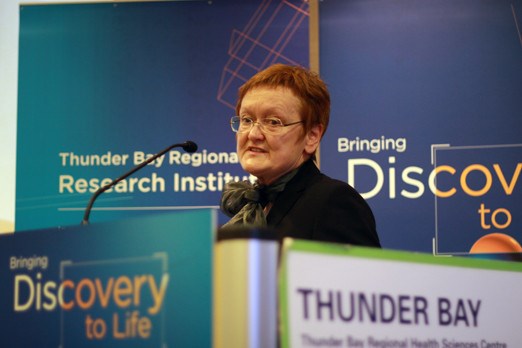A new cancer screening test could mean better access to health care for First Nations women in Northern Ontario.
The Canadian Institutes of Health Research awarded $600,000 to a project led by Thunder Bay Regional Research Institute scientist Ingeborg Zehbe to improve access to cervical cancer screening for Aboriginal women living in remote communities.
A pilot study was done in Fort William First Nation to determine if a self-sampling test would be embraced by the women. The funding from the CIHR will allow Zehbe and her team to expand their study to include another 1,000 women in 10 more First Nations.
This will allow Zehbe to confirm their results from FWFN and to raise more awareness about cervical cancer screening.
About 90 per cent of the women surveyed in FWFN liked the self-sampling better than a traditional pap test. Zehbe said she was pleasantly surprised by the results.
“This is something the women can do themselves whenever it suits them,” she said. “They don’t have to take hours away from child care or work. You don’t have to travel anywhere.”
Women can take the test at home and then send it the lab for testing themselves.
Dilico Family Health Team helped facilitate the pilot study and manager Natalie Paavola said the self-sampling test is important because it allows the women to stay in their communities.
“A lot of women, or the Aboriginal population in general, has to travel from their home to major centres such as Thunder Bay, Sioux Lookout to receive primary health care, but this project has allowed First Nation women to do self-sampling within the comfort of their own home,” she said.
“Anything that could expand on that and eventually have this type of testing to Aboriginal and non-Aboriginal women is a bonus,” she added.
